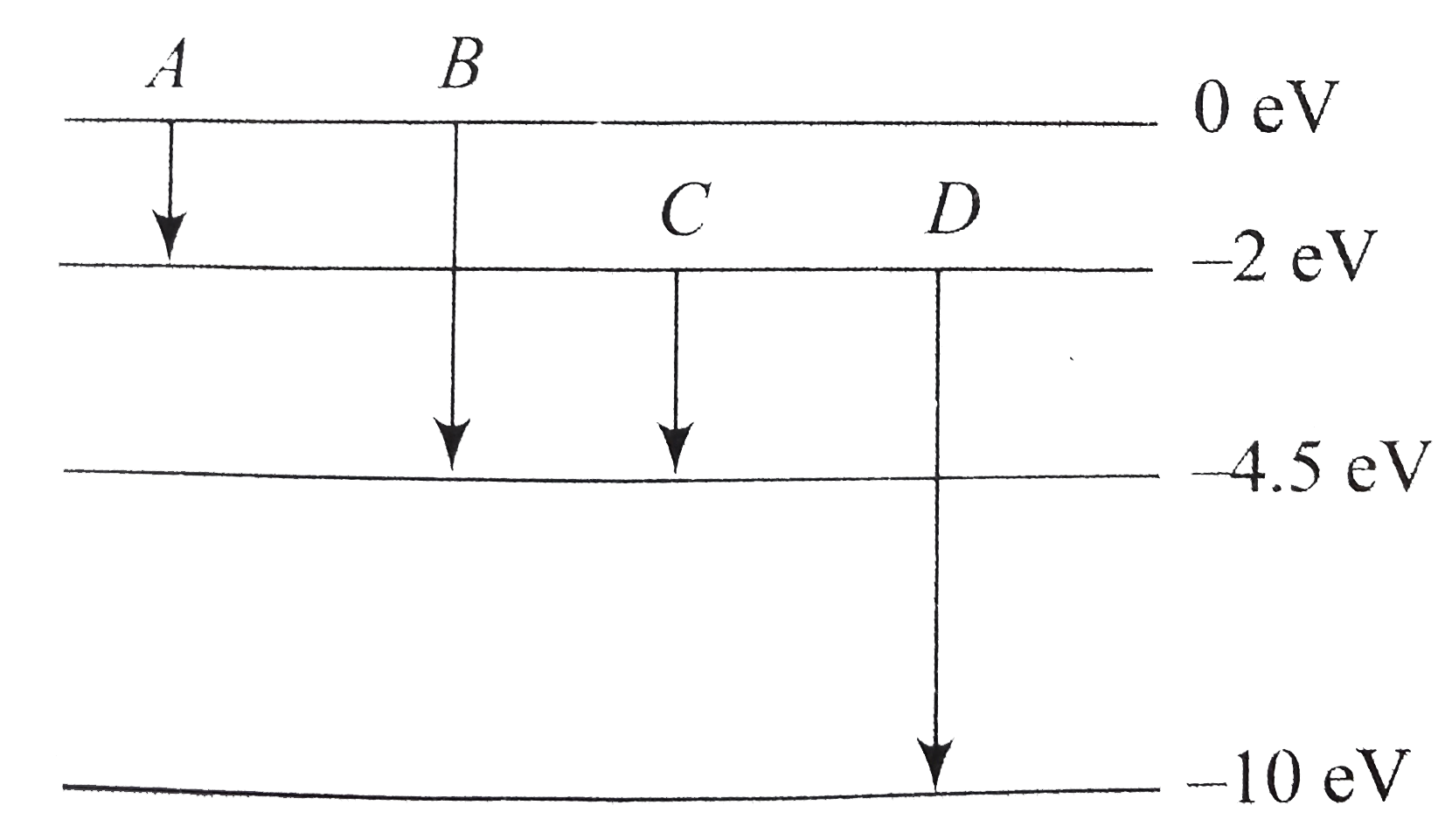Figure represent some of the lower energy level of the hydrogen atom in simplified from.
If the transition of an electron from E4→E2 were accociated with the emission of blue light , which one of the following transition could be accociated with the emission of red light?
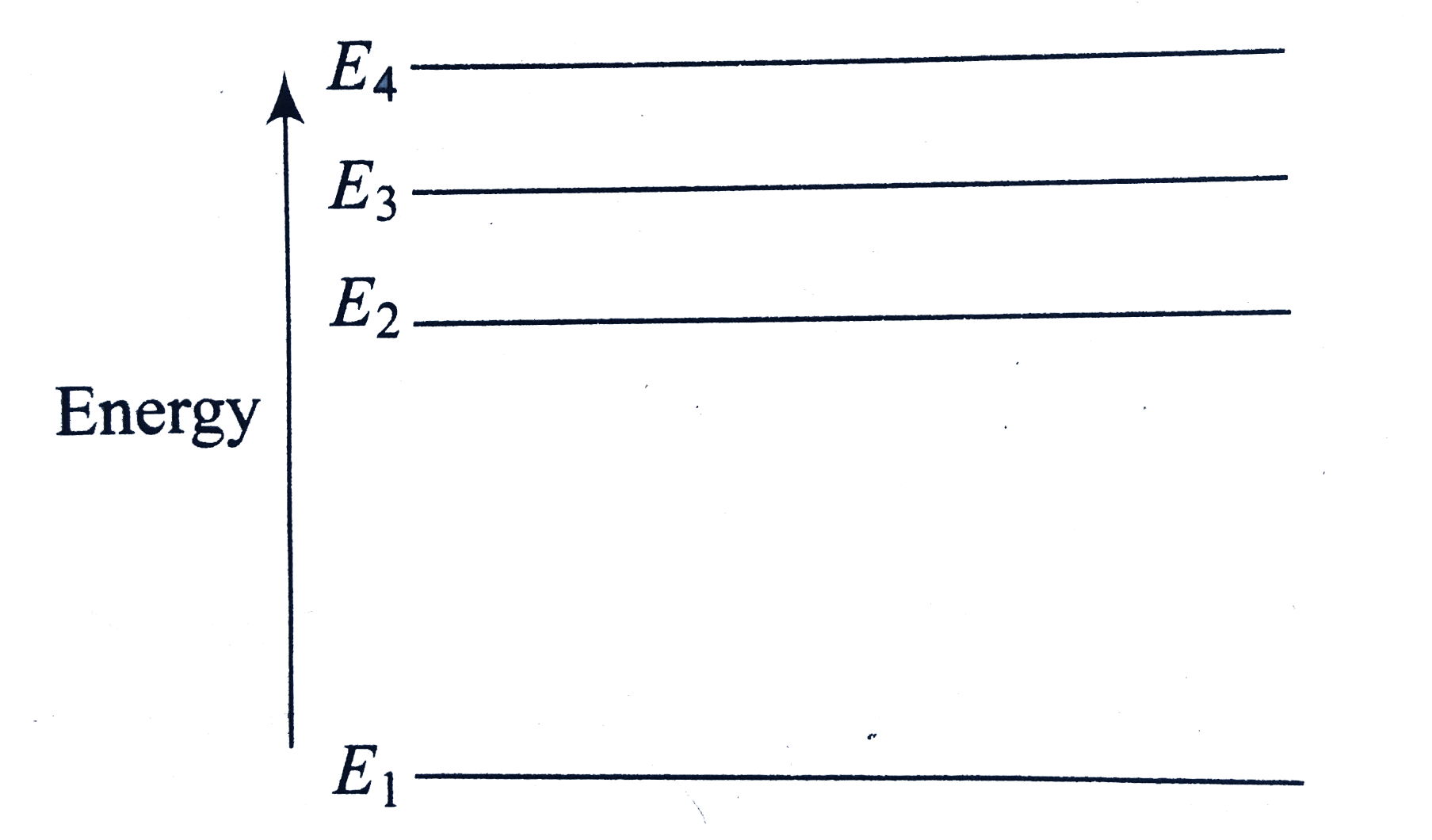
E4→E1
E3→E1
E3→E2
E1→E3
The correct Answer is:C
For emission of a photon with greater wavelength energy gap should be less.
Blue light falls in the Balmer series and it is obtained when the atom makes a transition from E4→E3. Red light also falls in the Balmer series and it has a lower frequency compared to blue light. By quantum theory of radiation , the energy change E is proportional to the frequency of electromagnnetic radiation fbyE=hf. Thus red light is associated with a smaller energy change from a lower energy level (compared to E4 to the first excited state E2. Hence, the only possible transition that result in the emission of red light is the E3andE2 transition.
Topper's Solved these Questions
- BOOK - CENGAGE PHYSICSCHAPTER - ATOMIC PHYSICSEXERCISE - Multiple Correct13videos
ATOMIC PHYSICS
- BOOK - CENGAGE PHYSICSCHAPTER - ATOMIC PHYSICSEXERCISE - Linked Comprehension62videos
ATOMIC PHYSICS
- BOOK - CENGAGE PHYSICSCHAPTER - ATOMIC PHYSICSEXERCISE - Subject17videos
ATOMIC PHYSICS
- BOOK - CENGAGE PHYSICSCHAPTER - ALTERNATING CURRENTEXERCISE - QUESTION BANK65videos
ALTERNATING CURRENT
- BOOK - CENGAGE PHYSICSCHAPTER - ATOMSEXERCISE - QUESTION BANK40videos
ATOMS
Similar Questions
Knowledge Check
- Question 1 - Select One
Which electronic transition in atomic hydrogen corresponds to the emission of visible light ?
An=5→n=2Bn=1→n=2Cn=3→n=4Dn=3→n=1 - Question 2 - Select One
In figure E1andE2 represent some of the energy levels of the hydrogen atom.
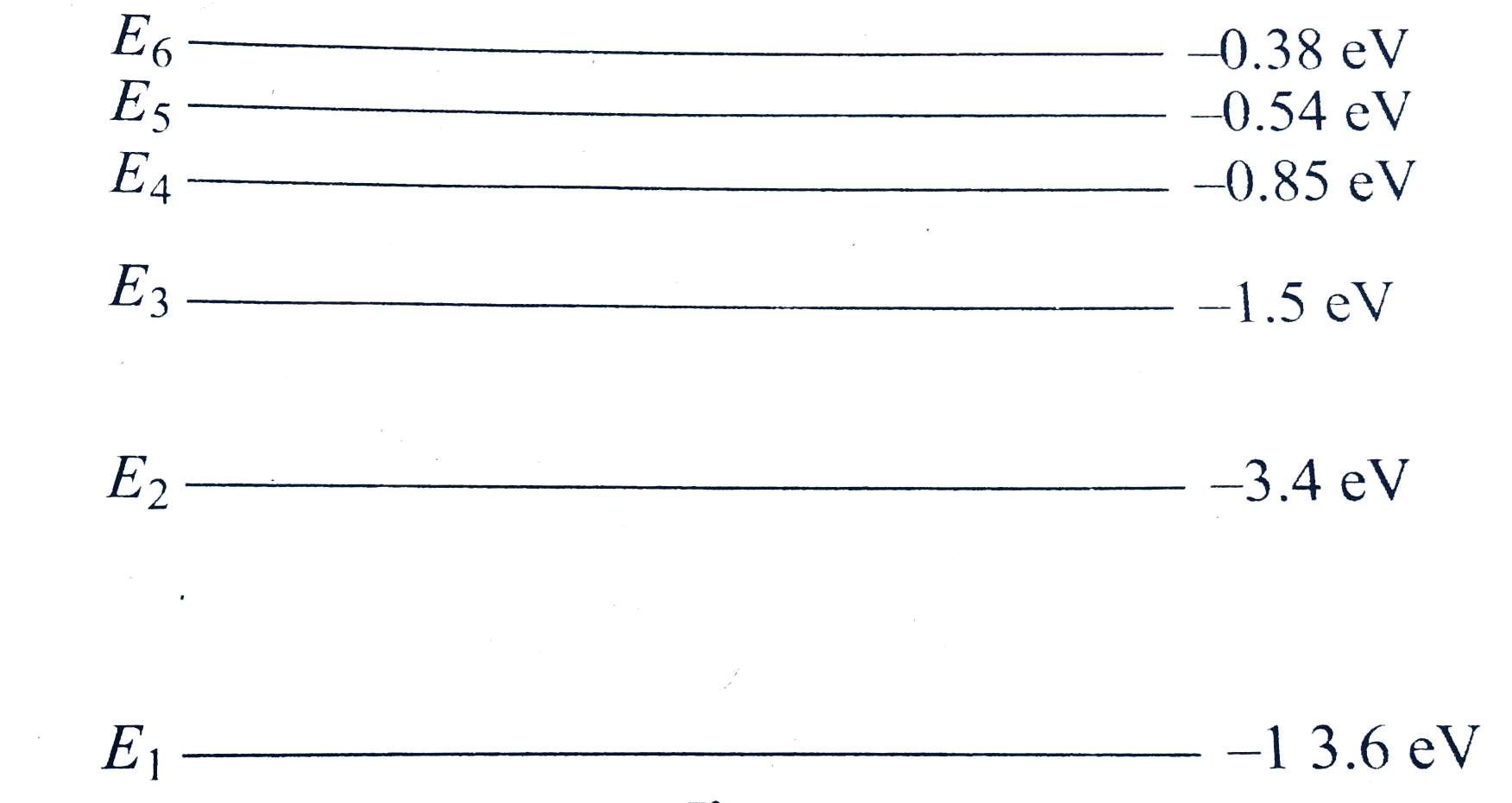
Which one of the following transitions produced a photon of wavelength in the ultraviolet region of the electromagnetic spectrum?AE2−E1BE3−E2CE4−E3DE6−E4 - Question 3 - Select One
Of the following transitions in the hydrogen atom, the one which gives on emission line of heighest frequency is
An=1 to n=2Bn=3 to n=10Cn=10 to n=3Dn=2 to n=1
Figure represents transitions of electrons from higher to lower state of a hydrogen atom. Which transition represents the line of Balmerseries:
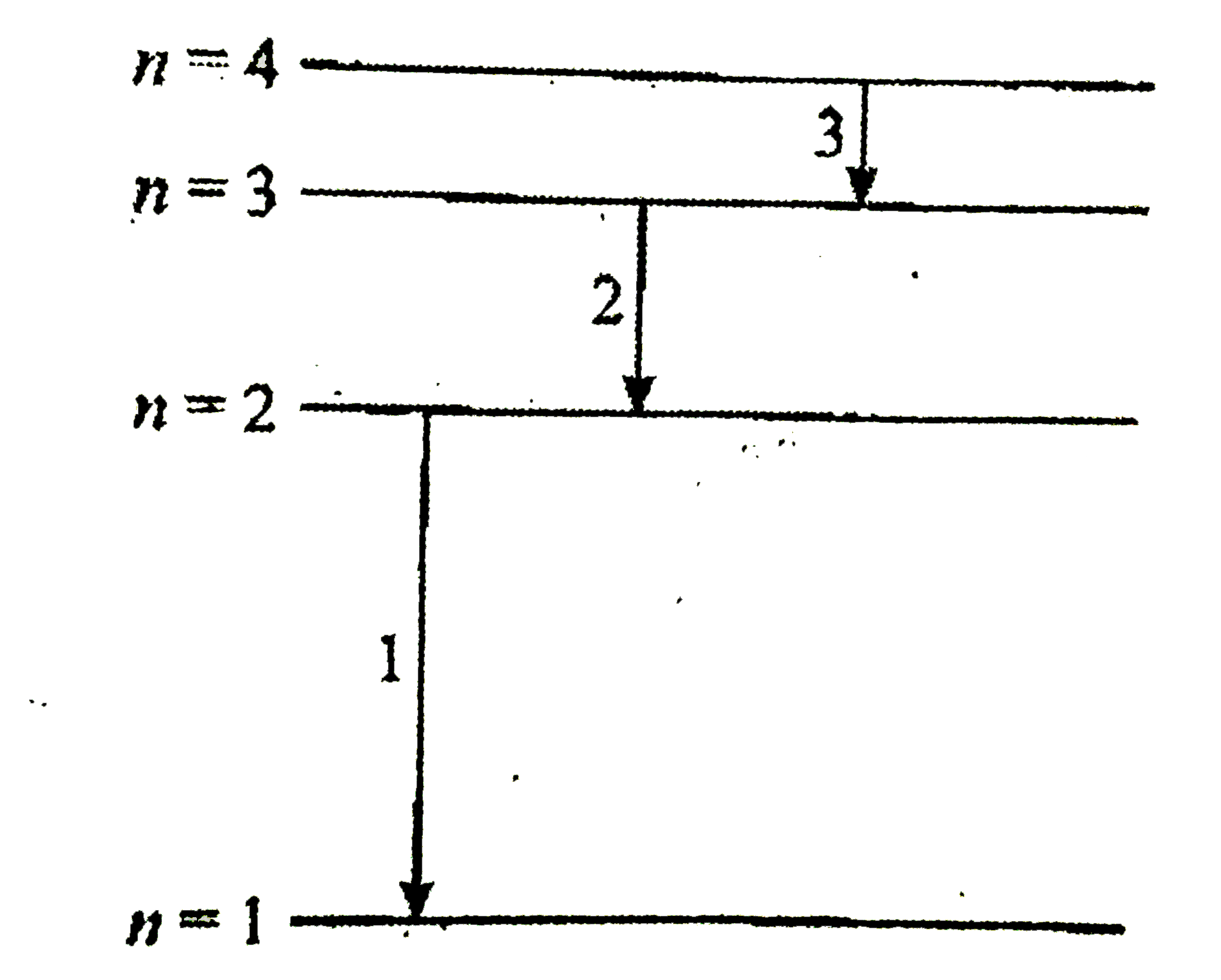 View Solution
View SolutionThe fig.12.15 showes energy level diagram of hydrogen atom .
(a) Find the transition which results in the emission of a photon of wavelenght 496 nm .
(b) Which transition corresponds to the emission of radiation of maximum wavelenght ? Justify your answer .
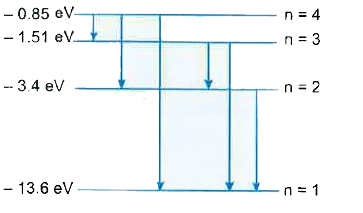 View Solution
View SolutionThe Fig 12.17 shows energy level diagram of hydrogen atom.
(a) Find the transition which results in the emission of a photon of wavelenght 496 nm .
(b) Which transition corresponds to the emission of radiation of maximum wavelenght ? Justify your answer .
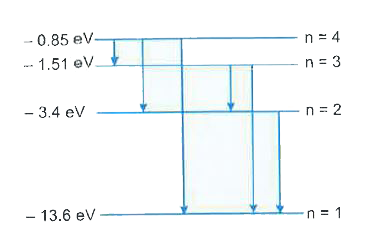 View Solution
View SolutionThe energy required for transition in a Hydrogen atom from 1st energy level to the 2nd energy level is E. Then , which of the following transitions is possible for the same energy in Helium atom ?
View SolutionThe wavelength of the spectral line when the electron is the hydrogen atom undergoes a transition from the energy level 4 to energy level 2 is.
View Solution


